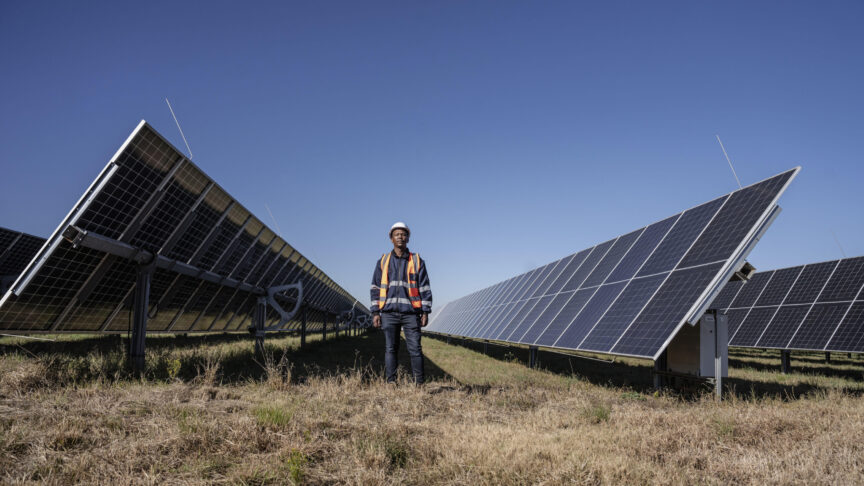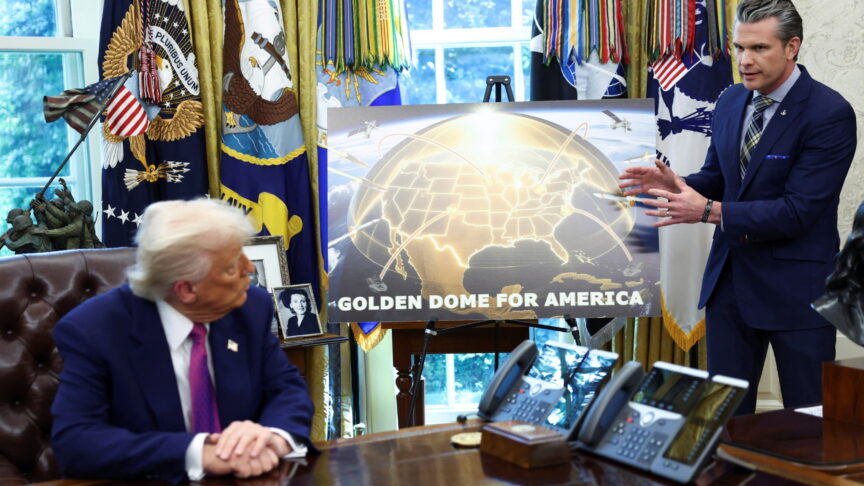Europe’s duty to help protect Crimean Tatars
Crimean Tatars face increasing repression by Russian authorities, but divisions on cooperation with Moscow or Kiev, as well as internal leadership disputes, have hindered a unified response. Europe must advocate for Crimean Tatars' rights despite these challenges.
Among the many challenges for European foreign policy created by Russia’s annexation of Crimea five years ago, one of the most underappreciated concerns the need to defend the rights of Crimean Tatars. The Russian authorities have continued to marginalise and repress members of the community, prompting around 20,000 of them to leave the peninsula since the occupation began. The process began in mid-2014, when Russia conducted a census that referred to them as simply “Tatars” – signalling that they were part of a broader community who have no specific claim to Crimea. As a result, the official Crimean Tatar population was reduced to 10.2 percent; the “Tatar” population is now 2 percent.
European foreign policy will have to account for a complex array of interests if it is to help defend the rights of Crimean Tatars
Earlier this year, the authorities’ published A History of Crimea, a high-school textbook that proved so controversial they had to withdraw it “for consultations”. The book claimed that “the majority of the Tatar population was loyal to the Germans [in the second world war] and many actively helped”, referring to “the wide involvement of the Crimean Tatars in collaborationist activity compared with other ethnic groups”. These long-discredited claims have troubling implications, given that the Soviet Union used them to justify the mass deportation of Crimean Tatars from the peninsula in May 1944.
Growing repression
By March 2019, non-governmental organisation Crimea SOS had recorded 422 cases of “enforced disappearances and unlawful detention and ill-treatment of Crimean Tatars, activists, journalists, and other individuals who are perceived to be pro-Ukrainian” during the occupation. This included 42 enforced disappearance that the UN Human Rights Monitoring Mission in Ukraine had verified by June 2018. The authorities have often targeted Crimean Tatars in detentions of alleged religious extremists, accusing 31 men – most of them Crimean Tatars – of involvement in Hizb ut-Tahrir, a pan-Islamist party that is banned in Russia but legal in Ukraine. And they have arrested 12 members of Crimean Solidarity, a human rights organisation set up in 2015 to help political prisoners. Despite the group’s efforts, there are an estimated 100 Ukrainian political prisoners in Russia, most of whom are from Crimea. And Russia arrested another 23 Crimean Tatar activists in the run-up to the Ukrainian election, suggesting that it had little confidence in its capacity to control social unrest on the peninsula.
These recent detentions have backfired. The authorities charged several Crimean Tatars – including Akhtem Chiygoz, a member of the Mejlis, a self-governing body the community elects every five years – with affray for their involvement in a protest meeting shortly before the annexation. Aside from the absurdity of making charges related to events before the annexation (when, even according to the Russian government, Ukrainian law should apply), witnesses have stressed that it was Russian provocateurs who caused the violence. The illogical nature of the process may be one reason why the authorities released Chiygoz and Ilmi Umerov, another Crimean Tatar leader, in October 2017. The debacle appears to have prompted a shift in Russian strategy, under which, according to QHA Media, “in 2018, more than half of political criminal cases were initiated under non-political articles – people are accused of illegal possession of weapons, fraud, damage to property”.
Attempts at collaboration
The Russian authorities have tried to infiltrate and co-opt the Mejlis. They have also tried to set up pro-Moscow clone organisations, as seen in the establishment of the Council of the Crimean Tatar People in February 2018. Following the failure of their earlier such efforts, the authorities banned the Mejlis in April 2016, classifying it as an extremist organisation.
Meanwhile, Crimean Tatar leaders who Russia co-opted have not held their posts in the occupation government for long. One of these figures, Vasvi Abduraimov, chair of political party Milli Firka, has regretted his attempts to reshape Russian policy from the inside.
Moscow has had more success in co-opting religious organisations. The Crimean Muftiate has largely cooperated with the Russian authorities, after they threatened it with the loss of some of its mosques. Renamed the Spiritual Administration of Muslims of the Republic of Crimea and Sevastopol, it has become one of Russia’s regional Muftiates. Likely as part of its attempts to manage relations with religious authorities, Russia has continued the construction of the large Cathedral Mosque of Crimea in Simferopol, and has allowed a growing number of Crimean Tatars to make the pilgrimage to Mecca.
The emergence of a third force?
Some Crimean Tatars are trying to adapt to the new challenges they face – if only as a means of survival. However, this has been made more difficult by the Mejlis’ internal problems. The last election to the Qurultay, its parent body, was held in 2013. Somewhat awkwardly, the organisation held in November 2018 a vote to prolong the term of its current leadership, but only 75 out of 248 delegates were able to participate. Some Crimean Tatars see the exiled Mejlis leadership in Kyiv as inflexibly perpetuating a narrative of victimhood and nationalism. Closely aligned with Ukrainian President Petro Poroshenko’s maximalist position on annexation, the Mejlis has discouraged efforts to build links with the Crimean Tatar diaspora in Turkey.
Nonetheless, there are signs of the emergence of a third Crimean Tatar movement that brings together the Mejlis and those who have collaborated with Moscow. Some Crimean Tatar activists now argue that members of their community should take no side but their own, as they are the victims of a conflict between two Slavic peoples. Enver Arpatly, a former Mejlis deputy mayor of Alushta who has become deputy prime minister of Karachai-Cherkessia, in the north Caucasus. Moscow appears to be training him for a return to Crimea (although this did not prevent him from strongly criticising A History of Crimea). Combined with the construction of the Kerch Bridge, efforts such as this might help facilitate the incorporation of Crimea into the Russian state and the Russification of the peninsula. But it could also help restore historical connections between the north Caucasus and Crimea.
For many Crimean Tatars, the focus of daily political activity has shifted to a small group of political prisoners’ families and their lawyers (who are relatively difficult to arrest, as seen in the international outcry that followed the authorities’ brief detention of Emil Kurbedinov in December 2018). This movement involves members of both the Mejlis and Hizb ut-Tahrir, organisations that were in bitter conflict with each other before the annexation.
Crimean Tatars need allies. In 2014 Russia encouraged dialogue between them and the Kazan Tatars, but ultimately changed course out of fear that they would turn their interlocutors against Moscow. Crimean Tatars also face growing competition from Chechens for control of business interests in Crimea. And, although Kyiv has trumpeted its policy of brotherhood between Ukrainians and Crimean Tatars as a triumph of civic nation-building, some Crimean Tatars worry about the effects of intermarriage and assimilation (they are less concerned about this in relation to ethnic Russians).
Islamisation is also a growing factor in Crimea. This is not due to radicalisation per se, but because many Crimean Tatars believe that religion could help them preserve their cultural and ethnic identity under occupation – much as the Catholic Church provided a basis for resistance against communist rule in Poland.
Uneven Ukrainian support
The Ukrainian parliament has provided inconsistent support to Crimean Tatars. In March 2014, it recognised Crimean Tatars as an indigenous people (referring to them as korinnyi, or “rooted”) and the Mejlis as “the highest representative organ of the Crimean Tatar people”. It also recognised the 1944 deportation as “genocide” the following November, and condemned Russia’s ban on the Mejlis in October 2016. A draft bill “On the status of the Crimean Tatar people in Ukraine” was registered in parliament in April 2017, but the measure has made no real progress since then.
However, none of these declarations has the force of law and there is little prospect of alterations to the Ukrainian constitution that would change this – not least because Poroshenko is preoccupied with his fight to retain power. Meanwhile, the Ukrainian authorities have disrupted attempts to set up Crimean Tatar paramilitary formations in the city of Kherson. The Mejlis could be even more marginalised in Ukraine after the country’s election, especially if Poroshenko loses in the second round.
Kyiv did not help Crimeans participate in the first-round vote, requiring them to cross checkpoints on the edge of occupied territory and to visit Kherson twice – first to register and then to vote. Crimean Tatars in mainland Ukraine were able to vote, but there are few of them. Nonetheless, the Mejlis came out in support of Poroshenko on 10 March, claiming that only he was able to confront Russian aggression. Poroshenko responded on Facebook, including three Crimean Tatars on his list of “trusted persons”: Chiygoz, former Mejlis chair Mustafa Dzhemilev, and film director Akhtem Seitablayev. Yet, due to the polarisation of Ukrainian society, the Mejlis’ decision drew criticism from even “patriotic” Ukrainian and Crimean Tatar circles for endangering the interests of Ukraine to support a candidate who might lose. Volodymyr Zelensky, the winner of the election’s first round, has promised to defend Crimean Tatar rights “by all possible means”.
Europe’s role
In this context, European foreign policy will have to account for a complex array of interests if it is to help defend the rights of Crimean Tatars. Russia may have failed to create an alternative to the Mejlis and its institutions, but Crimean Tatars are also at a strategic impasse, facing a choice between a homeland without freedom or freedom without a homeland. Europe should continue to reject Russia’s argument that Crimea is ancient Russian land and should maintain its sanctions on the country linked to the occupation. Indeed, there is still a possibility that instability on the peninsula will lead to a reversal of the annexation. In the meantime, Crimean Tatars are an indigenous people who deserve special status under the full protection of EU and international law.
Ridvan Bari Urcosta is a research fellow at the Institute of International Relations at Warsaw University, where he specializes in Russian Foreign Policy and particularly Russian Grand Strategy in the Middle East. Currently teaching his personally developed course for Polish and Erasmus Students: The Russia and the Middle East: Geopolitics and Diplomacy.
The European Council on Foreign Relations does not take collective positions. ECFR publications only represent the views of their individual authors.


